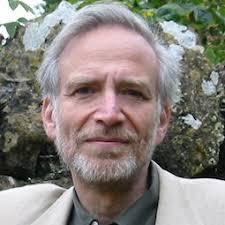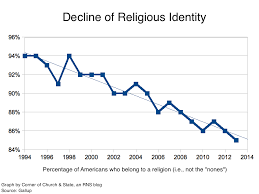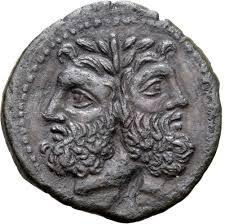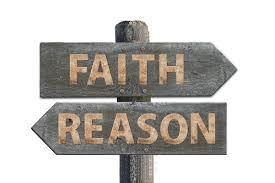
A friend urged me to read anthropologist Melvin Konner’s 2019 book, Believers. Its subtitle, Faith in Human Nature, has two meanings, readable together as the book’s thrust. Seeing religion in the context of human development and psychology, and as something arguably positive.
A defense of religion is not exactly virgin territory. But Konner identifies as atheist. He does part company from anti-religious writers like the “Four Horsemen” (Harris, Dennett, Dawkins, Hitchens). Who make three principal points: 1) religions are all false; 2) they do great harm; and 3) they’re cultural atavisms doomed to be outgrown. Konner actually agrees with the first two points, though he’s more forgiving about religion’s track record. It’s the third point he really disputes, arguing that because faith resonates so deeply for so many people it will always have a role in human culture — and should.

Konner acknowledges that in recent decades religious belief has been collapsing in most enlightened societies. Even America (where church-state separation actually benefits religion) is not far behind. What has happened in those places is that religion’s mystique is now broken. In past epochs, irreligion was never widely visible as an alternative. Changing that allows reason to do its work.
Konner notes that’s not happening elsewhere — principally in the Muslim world. There the mystique still holds (helped by the death penalty for deviance). But can that endure forever? Even Muslims have brains. Konner does argue that believers typically have more children, offsetting losses to secularism. Nevertheless, he elsewhere predicts increasing non-belief.
The book meantime holds that religion’s demise would be undesirable; losing more than we’d gain. We’ve long been warned that without religion’s whip, our natural depravity would run riot. Yet those European countries where religion has in fact largely disappeared are the most orderly, decent, moral, socially advanced ever.

But Konner’s indulgence for religion is grounded in the Roman Terence’s line, “Nothing human is alien to me.” Seeing belief as quintessentially human, Konner is fine with it. I myself, as a humanist, love humanity; yet recognize our dark side (often manifested in religion). So Terence’s standard is unhelpful.
Konner declares “that humans do not live by logic alone,” and that religion “has much in common with love, joy, anger, grief, and other feeling states,” all often non-rational or even dysfunctional, and “we can’t fully support them with evidence;” but that shouldn’t lead us to banish them. Well, obviously; but beliefs in deities, or afterlife, or other religious fables, are something else altogether.
“Spirituality” is another de rigueur topic in such a book. Konner invokes “feelings about the sacredness of nature and human relationships and a sense of purpose, memory, and moral standards,” et cetera. Yet none of that too need entail anything supernatural or conventionally religious. Instead being perfectly compatible with a secular and naturalistic take.

And Konner himself, nodding to debate over God’s existence, has a dim view of those who say things like “God is life,” or “God is the love in all our hearts,” and so forth. His response to such babble is “Huh? I don’t get it.”
There’s something schizophrenic about this book. On the one hand, it’s often clear about all the cognitive and psychological factors leading people to false religious beliefs. Yet rather than urging us to overcome those, their naturalness leads Konner to judge that it’s perfectly fine to let it happen. And how ineluctable is it, really? As opposed to being an idiosyncratic and hence alterable cultural artifact? Tellingly, Konner himself acknowledges (my emphasis) that children “raised without religious indoctrination” tend to grow up “normally” — that is, “without religious belief.” So why does he still insist religion should be indulged as natural to us? And contradictorily also assert that becoming religious is a normal trajectory?

In his own opposite trajectory, a key point for him was the multiplicity of world religions, which can’t all be true. Were there a single global faith, such unanimity might daunt dissenters. However, as things are, to posit exclusive truth for one of those faiths as against all others cannot fly.
Departures from faith have great personal resonance for me, a supporter of Secular Rescue, a program helping mostly ex-Muslims persecuted for that. Their rationality, courage, and grit in the face of horribleness by religious people is inspiring. Giving a sour taste to Konner’s coddling of religion.

Then there’s the old business about faith comforting people. A deity watching over one might be comforting (though inimical to privacy). Oddly, Konner says little about death — the big thing everyone must somehow confront. The idea of going to Heaven (indeed, a paradise!) after death might be highly comforting. Yet few believers seem eager to embark. Perhaps in their heart of hearts they know better.
I think most folks go through life without deep reflection about it, instead just taking it as it comes. That includes religion. Maybe my own quest for understanding seeks to compensate for what in hindsight was cluelessness during early years (though even as a toddler I never fell for religion).
In 2003 my wife casually suggested I write for our daughter (then ten) everything I wanted her to know. This soon required rigorously thinking through it all, interrogating my beliefs and ideas. The result was two books, but also an evolved way of being in the world. No longer just taking life as it comes. Now the interplay between what I see and what I understand is central to my engagement with life. Central to who and what I am.

A religious belief system can be similarly central to one’s selfhood. But it’s a false structure — hence I can’t share Konner’s indulgence for it. You cannot live life in an authentically meaningful way if it’s centered upon a fundamentally false understanding. (One need only look at Trump voters — overwhelmingly religious — to see how faith messes up the brain.)
Coming to mind is a phrase from my long-ago criminal law class. To be guilty of an “attempt,” a defendant “had to be on the job he thought he was on.” In their very lives, religious believers are not on the job they think they’re on. Off in some la-la land, not the real world.
Life is too precious for that. Precisely because it’s all we have, and there is no God.
